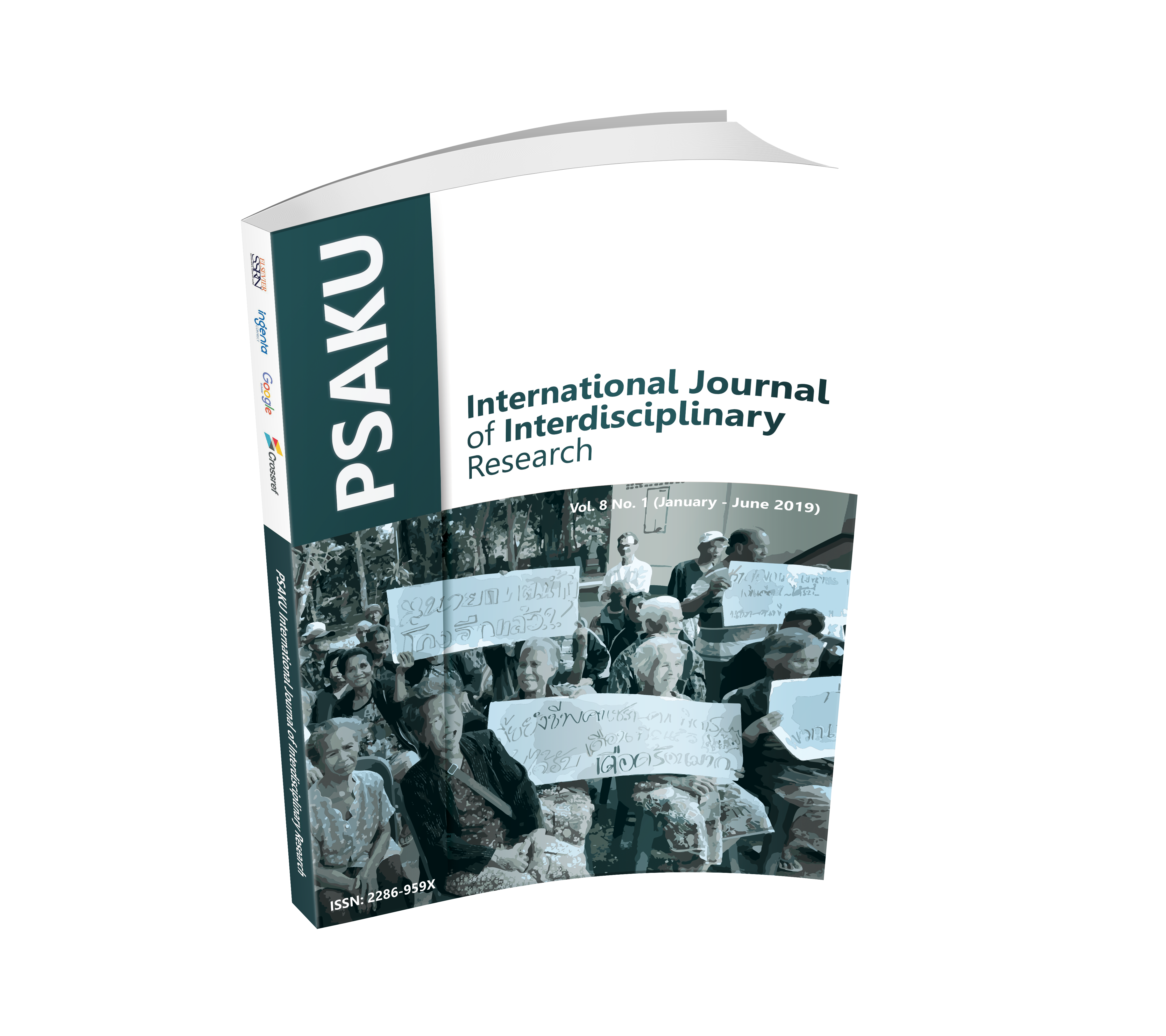Empowerment: Mechanism to Develop Life Quality for Thai Persons with Disabilities
Keywords:
Empowerment, Persons with Disabilities, Quality of LifeAbstract
Persons with disabilities are regarded as a group of “vulnerable persons” in the society because of their physical or mental health problems that lead to hardship for self-adjustment to the society. These problems put the disabled persons at risk as they are more vulnerable to all changes in their lives. Therefore, the disabled should receive special attention on living conditions and social welfare to improve their life equality in the society. Apart from receiving rehabilitation or welfare from the government and relevant agencies, under the “EQUAL” strategy, the disabled person should be empowered for their better life quality. Empowerment is defined as building of power for the disabled persons, both internally and externally. The programs to promote their internal competence such as knowledge, attitude toward self and society, and living skills should be provided through experiential learning. By doing so, the disabled persons are expected to apply those competences for better living and life quality. Complementarily, external empowerment such as support from family, self-help network, government and private agencies should be provided to develop various skills for the disabled persons, as well as adjustment of physical and social environment to serve needs of the disabled persons. Such empowerment schemes should aim for promotion of selfreliance and independent living that allow the disabled persons to use their knowledge and competences. As a result, the disabled persons will reduce external support and become more self-independent to achieve equal life quality in the era of disruptive changes.
Downloads












.png)


